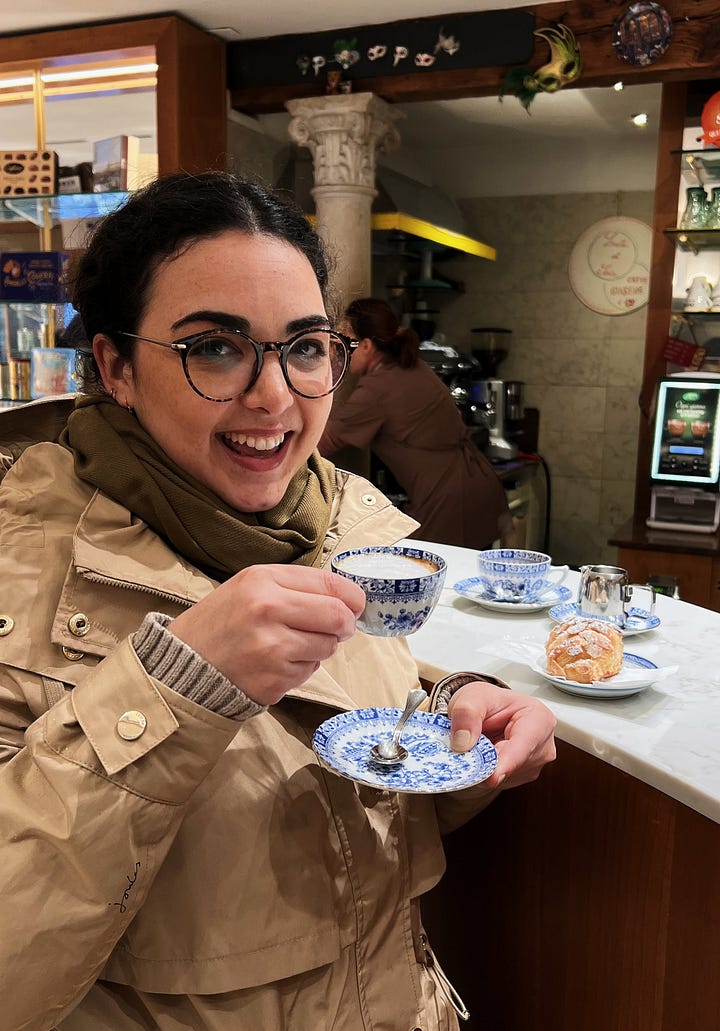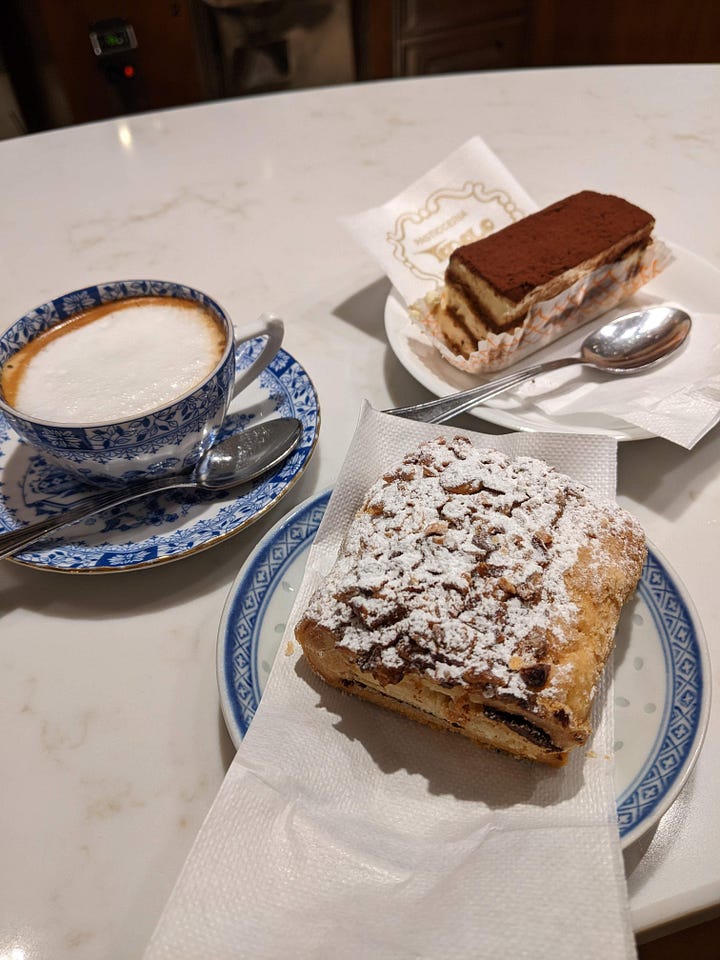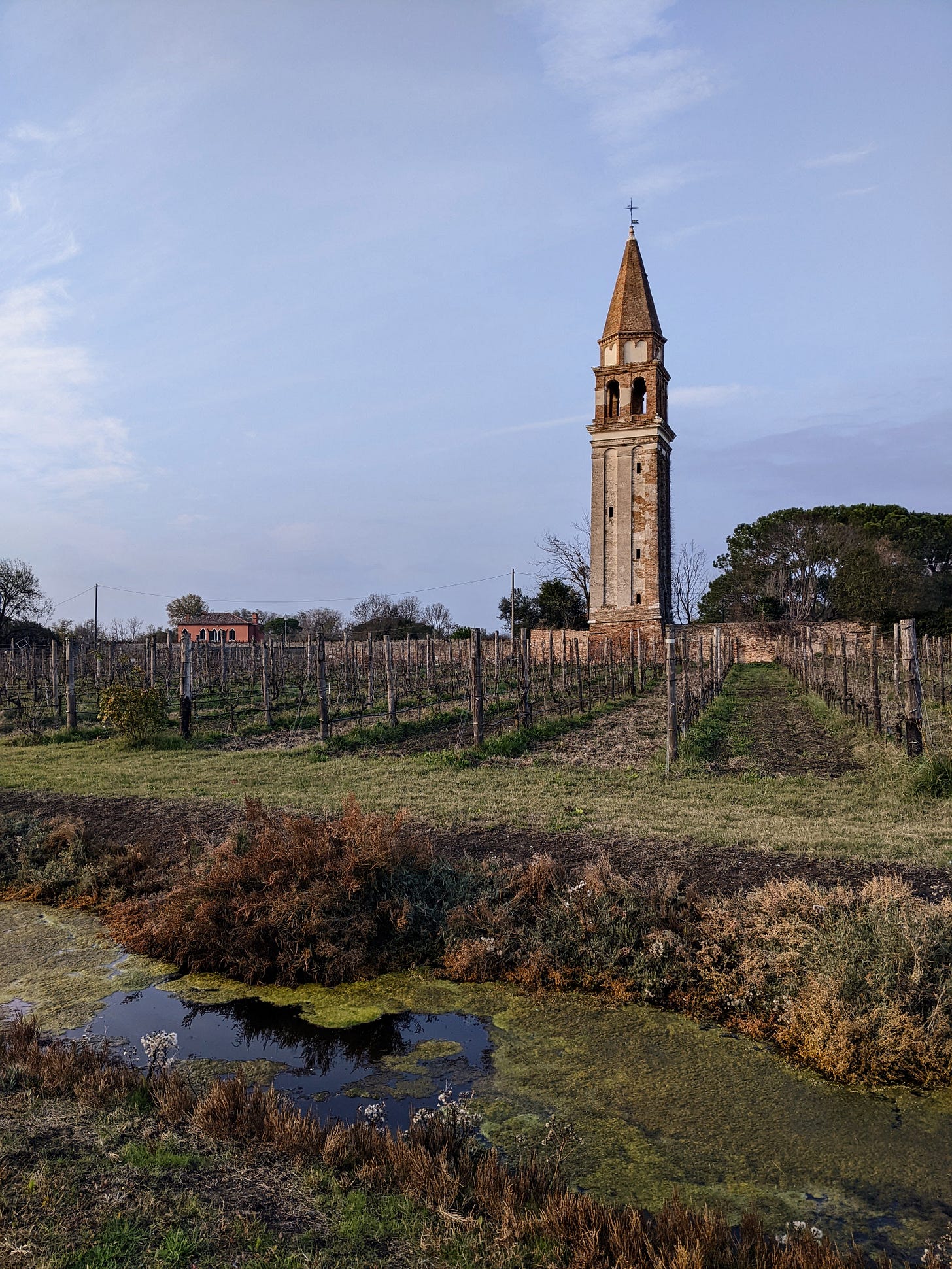Dear Dorona. An afternoon at Venissa.
A vineyard in the middle of the Venetian lagoon is home to a beautiful story and even more beautiful wine. Plus a poem, ten months in the making.
It’s only taken me ten months to put pen to paper or fingers to keyboard, in this instance. I’ve wanted to encapsulate some feelings after visiting Venice for the first time last year for my thirty-first birthday.
Writing for me is 100% intuitive and I’ll never be able to force something when it’s not there. I’m so happy the words finally came out to express my complete and utter awe for this small vineyard, located on the island of Mazzorbo in Venice.
The vineyard is called Venissa, and it’s one of the most magical places I’ve ever visited, even in the crisp cold air of late November, when the vines have given their all for harvest season and get their well-deserved rest before they have to do it all over again.
I say magical, but it was more than that. It really brings tears to my eyes as I write this because this world is so incredibly special and filled with the most incredible corners, with the most wonderful stories that it makes you wonder, how am I right here right now? I can feel this turning into an existential so I’ll nip it in the bud.
Venissa is a love letter to a grape once forgotten and nearly all lost, the Dorona grape. Brought back to life by winemaker Gianluca Bisol, after coming across a “small vineyard in a garden in front of the Santa Maria Assunta Basilica, the oldest church in all of Venice, located on the island of Torcello.”1
In order to understand the importance of Venice’s winemaking tradition, one need only recall that Piazza San Marco contained a vineyard until the year 1100. The first traces of viticulture harken back more than 2500 years, and the islands of the lagoon were always cultivated in order to provide some self-sufficiency in a lagoon 92% of whose surface is covered by water. Even the piazzas were farmed, hence the term “Campo” (field), which is often used in place of “Piazza.”
— Venissa
I think the reason why I connected so much with the vineyard and its history is the fact that I see the Dorona grape as a symbol of patience and chance. There’s something particularly special in the discovery of something that connects us directly to the history of a place. It brings us back, if only in our heads, to a time that no longer is. You may call it escapism but to me it’s poetry.
Not to mention the fact that this grape is native to the area because no other grape variety thrives as much in the strong salinity of the water that sits right under the soil that feeds it. I think we can all appreciate a little bit of uniqueness and the Dorona grape is nothing short of unique.
I had originally planned to visit Venissa for my birthday but forecasts of heavy rainfall and incredibly high tides, ‘acqua alta’ (170m), had other plans. High tides are always cause for concern in Venice as the city relies heavily on a system of floodgates called MOSE which protects the lagoon from devastating flooding. This meant moving the visit forward by one day or losing the chance to visit the vineyard altogether.
We booked the VIAGGIO wine tasting, an hour-long experience that includes a tour of the vineyard and a tasting of four different wines (Venissa Bianco 2017, Venissa Rosso 2016, Venusa Bianco 2019, Venusa Rosso 2016). There is so much to say about the care and attention to detail that goes into the creation of these wines but I won’t spoil it for you.
After deciding I couldn’t part ways with Venissa so soon, we stayed for dinner at their Osteria Contemporanea. Venissa is also home to a Michelin-starred restaurant led by chefs Chiara Pavan and Francesco Brutto, which I hope to visit in the not-so-distant future.
However, the Osteria is a must-visit as far as I’m concerned. It will forever be the place where I ate the most delicious confit potatoes.
As the evening drew to a close it was time to make our way back to the main island. We waited for the Vaporetto while reminiscing on such a fantastic day, I really didn’t want to leave.
I’ll never forget the complete and total silence that surrounded us as we left the estate, only the click-clack of our shoes could be heard. The lagoon was totally pitch black and the waters were calm. It was a bit cold but I hadn’t packed the right clothes so that’s on me. I really, really didn’t want to leave.
The next day we woke up to the news that the MOSE had successfully warded off the high tides, had it not, it would have resulted in catastrophic floods for the city.2
After having breakfast in bed (panettone and a coffee), we ventured off for some more coffee and birthday pasticcini at Pasticceria Tonolo.
The day only got better and I’ve come to appreciate the rain, even if a little bit more. High tides, not so much.


I walk across the vineyard the leaves are of a subtle pale brown eaten by the frost no life in them except for very tiny little holes where the light shines through. These vines are sacred, I felt it as I stepped on their ground. The wind carries their story, And I listen like my life depends on it. They tell me all about the salinity in the soil but nothing’s ever burnt this wound more than the thought of what may be. Parallel universes always haunt me there’s a story in the road less traveled. Do I have time to make a quick detour? There’s a story no matter. The crisp cold air reminds me the sun is setting quickly. But I want to stay here for ever wander the lagoon with fervour. Inspect its every corner inspect its every curve. They call it unfinished business but to me it’s just love. I’ll never forget this feeling this moment is for ever for me alone.
The Story - www.venissa.it
Venice kept dry as dam system wards off exceptional high tide - www.reuters.com







